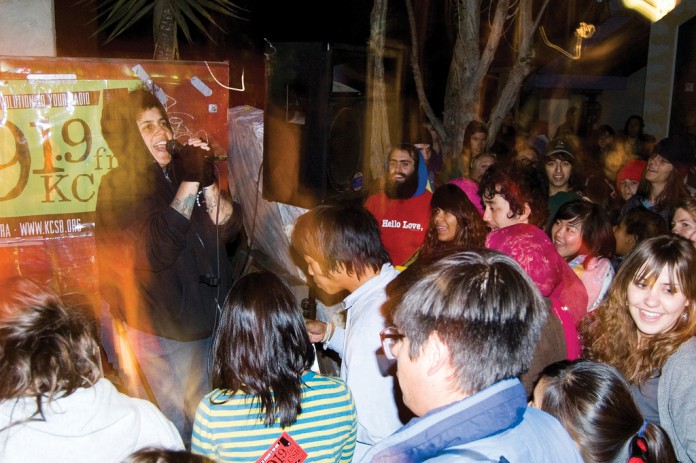
Monica Itxy Quintanilla
On the first half of the 6600 block of Sueno lies a two-story, Tuscan orange student housing co-op with the name “BIKO” written on its façade. Purchased in 1997, Biko House is only one of five theme-oriented housing co-ops in Isla Vista where a close-knit community is fostered amongst the members. With affordability of housing in Isla Vista being one of the many issues for students, the Santa Barbara Student Housing Co-op Organization (SBSHC) aims to provide a low-rent alternative regardless of gender, race, social, political and religious affiliation, thereby implementing their greater mission of eliminating prejudice and discrimination in the community.
The Biko House, named after the founder of the Black Consciousness movement and anti-apartheid leader Stephen Bantu Biko, is unique in that it aims to maintain a safe space for people of color in a predominately white community. As Josh Redman, the membership services coordinator at SBSHC, explained, this theme has evolved as a result of years of constant reevaluation.
In the spring of 2001, a diversity task force was established in an attempt to address the lack of diversity in the co-ops. By the fall of 2001, Biko decided to take on a more active and intentional role by advocating for social justice and creating a space where people of color can feel like a part of the community. Since then, the Biko House mission has been updated to creating a community consciousness regarding various issues, such as, “racial equality, social justice, oppression, cultural awareness, social movements and the need for intersectionality within the Isla Vista community and beyond.”
In an effort to emphasize this theme, the application process, which was previously first come, first serve, has transformed into a priority-based selection, meaning that the applicant must place the Biko House as their first choice and “must either be a declared or intended ethnic studies major (black studies, Chican@ studies, Asian-American studies or indigenous studies) or be affiliated with a social organization that allies with the mission of the house.” According to the membership requirements, these newfound regulations are intended to encourage people who are actively engaged in improving communities of color by prioritizing them, however, anyone is able and encouraged to apply.
As Kyron Covington, third year language, culture and society major currently living in Biko explained, “The goal of the house is not to exclude white students, but make a more inclusive space for students of color who may feel displaced; it is the niche within a niche community that believes wholeheartedly in cooperation, and engaging a society that may not want us to have spaces as such.”
Biko’s commitment to fighting racism and spreading equality is made visible to the public most notably through the detached garage that acts as an all-purpose community space for musical performances, art exhibitions, workshops, spoken word and more. Often, touring bands perform under the general “DIY” umbrella on any given night with heads bobbing and feet shuffling as the music and colorfully-painted walls create a place where one can move freely and easily. The music has varied over time, starting early on with a large amount of punk and hardcore shows, which, at one point, were widely organized by Steve Aoki during his time at Biko.
In 2004, the entire right side of the garage was opened up to allow more space for community events. More recently, in order to remain aligned with its mission, the garage space attempts to prioritize people of color artists, educational workshops/events and student organizations, such as the MultiCultural Center. The space has remained all-ages with a no alcohol policy and is completely donation-based, although no one will be turned down for lack of funds.
Apart from the renowned Biko garage, the two-story house itself is equipped with twelve bedrooms and six bathrooms, a living room “decked with a monstrous amount of VHS tapes varying from Austin Powers to Kiki’s Delivery Service and extremely comfy couches,” a patio area, house garden and large backyard. Interestingly enough, the Biko house itself was once a communal living space back in the late 1960’s and early 70’s known as “The Well.” After being repurposed as a fraternity, “The Well” disappeared for some time until Biko returned to reclaim the space as a housing co-op. Now, long-standing members of Isla Vista still remember Biko as “The Well,” thus continuing a legacy of an unprejudiced and all-inclusive community for the residents of Isla Vista.










